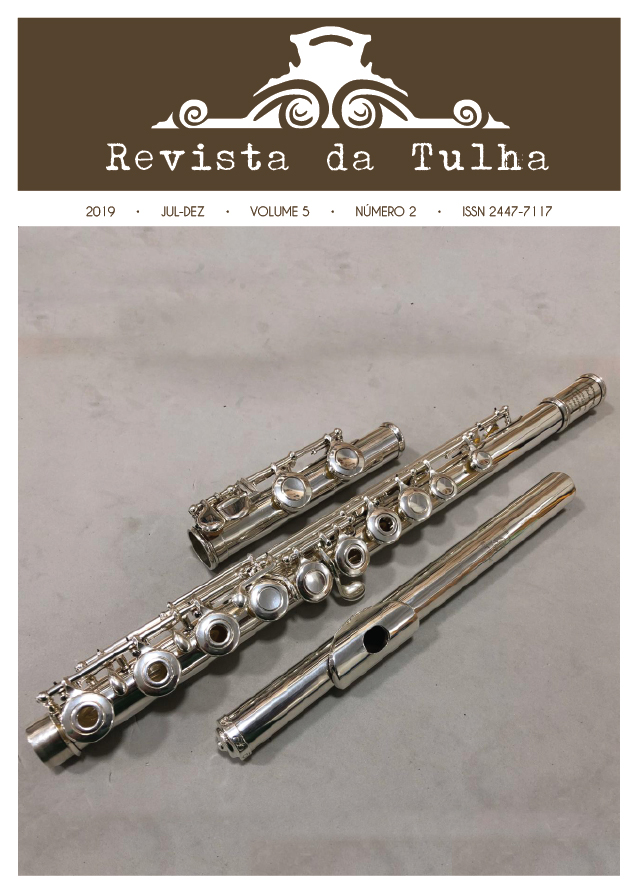About Beethoven, the silence of Hegel
DOI:
https://doi.org/10.11606/issn.2447-7117.rt.2019.164253Keywords:
Philosophy of Art, Beethoven, HegelAbstract
The magnitude that music gained as the object of philosophical thought in the nineteenth century is widely recognized. Even composers, once considered artisans, have become influential thinkers after the growth of importance of music in the thinking of great philosophers. Ludwig van Beethoven (1770-1827) stands out as the pioneer of a trend that will culminate in Richard Wagner's relevance to the history of philosophy: In the nineteenth century the most important philosophers will give a certain primacy to aesthetics - including the musical - recently organized as a discipline. This is the case of G. W. F. Hegel (1770-1831), Beethoven's contemporary philosopher most influential. The hypothesis of this study starts from the unrelation between these two important protagonists which in the indicated historical conjuncture is strangely remarkable. Hegel in his many lectures on art and music never refers Beethoven among the many composers he uses as his examples; moreover, it is possible that there are certain veiled censures of poetic-stylistic character developed in his writings, applicable to the music of the German composer. On the other hand although there is no record of Beethoven's comments about his absence in Hegel's philosophy, the hypothesis of this study suggests that the response to the Hegelian program may have occurred in the artistic field, specifically through his Ninth Symphony. Still little explored, the conjunction art-philosophy, taken in the context of the relationship between composers and philosophers, can find here a less noisy preview of the consecrated Nietzsche-Wagner clash. Thus this essay aims to speculate precisely on what emerges from the silence of both actors concerned: what Hegel did not say, and what this silence means; what Beethoven did not expose in written record, responding to the Hegelian silence about himself with a musical work, and the effectiveness of this response.
Downloads
References
DAHLHAUS, Carl. Estética Musical. Tradução de Artur Morão. São Paulo. Edições 70, 2003.
HEGEL, G. W. F. Cursos de Estética. Volume III. Tradução de Marco Aurélio Werle e Oliver Tolle. Consultoria: Victor Knoll. São Paulo. Edusp, 2002 [1835].
HEGEL, G. W. F. Estetica. Il manoscritto della «Bibliothèque Victor Cousin». A cura di Dario Giugliano. Turim. Giulio Einaudi Editore, 2017.
KANT, Immanuel. Crítica da Faculdade do Juízo. Trad. Valerio Rohden e António Marques. Forense Universitária. 3ª edição 2012 [a partir da 2ª edição alemã, 1793].
PAREYSON, Luigi. Estética – Teoria da Formatividade. Tradução de Ephraim Ferreira Alves. Petrópolis: Vozes, 1993 [1ª ed. 1954].
PAREYSON, Luigi. Os Problemas da Estética. Tradução de Maria Helena Nery Garcez. 3ª ed. São Paulo: Martins Fontes, 1997 [1ª ed. italiana 1966].
SCHINDLER, Anton. The Life of Beethoven. Ed. Ignaz Moscheles. Tradução de Henrich Döring. Boston, Oliver Ditson Company. 1900 [1841]
SENNER, Wayne M.; WALLACE, Robin; and MEREDITH, William. The Critical Reception of Beethoven’s. Compositions by His German Contemporaries, volume 2. University of Nebraska Press - Sample Books and Chapters, 2001.
WAGNER, Richard. Beethoven. Tradução de Theodemiro Tostes. Porto Alegre: L&PM Editores S/A, 1987 [1870].
WALLACE, Robin. The Critical Reception of Beethoven’s Compositions by His German Contemporaries, opus 125. Tradução e edição de Robin Wallace. Center for Beethoven Research, Boston University. 2017.
Downloads
Published
Issue
Section
License
Copyright (c) 2019 Lucas Eduardo da Silva Galon

This work is licensed under a Creative Commons Attribution 4.0 International License.
Authors retain copyright and grant the journal the right to first publication, with the work licensed under the Creative Commons Attribution License CC-BY-NC:
This work is licensed under a Creative Commons Attribution 4.0 International License.



